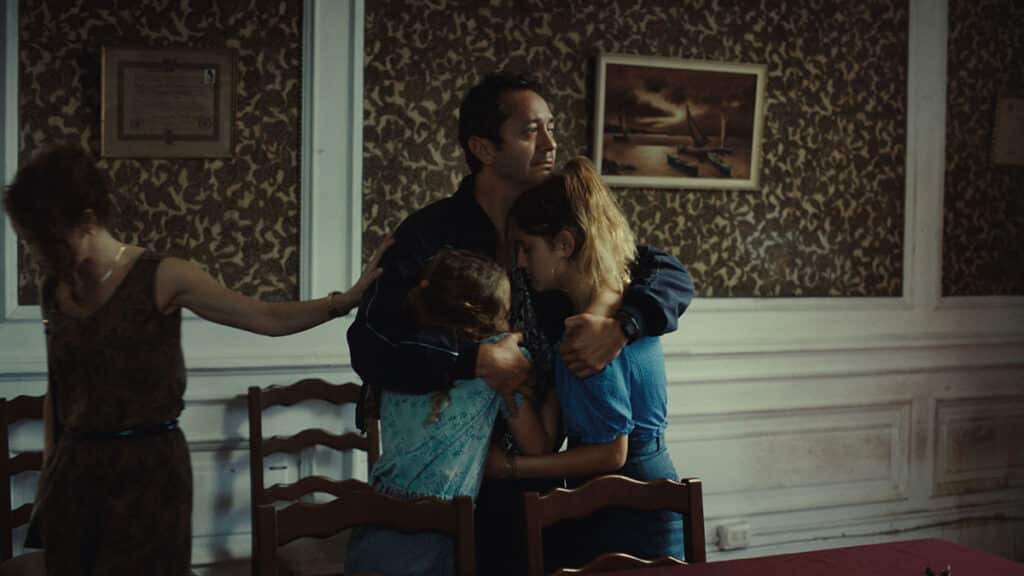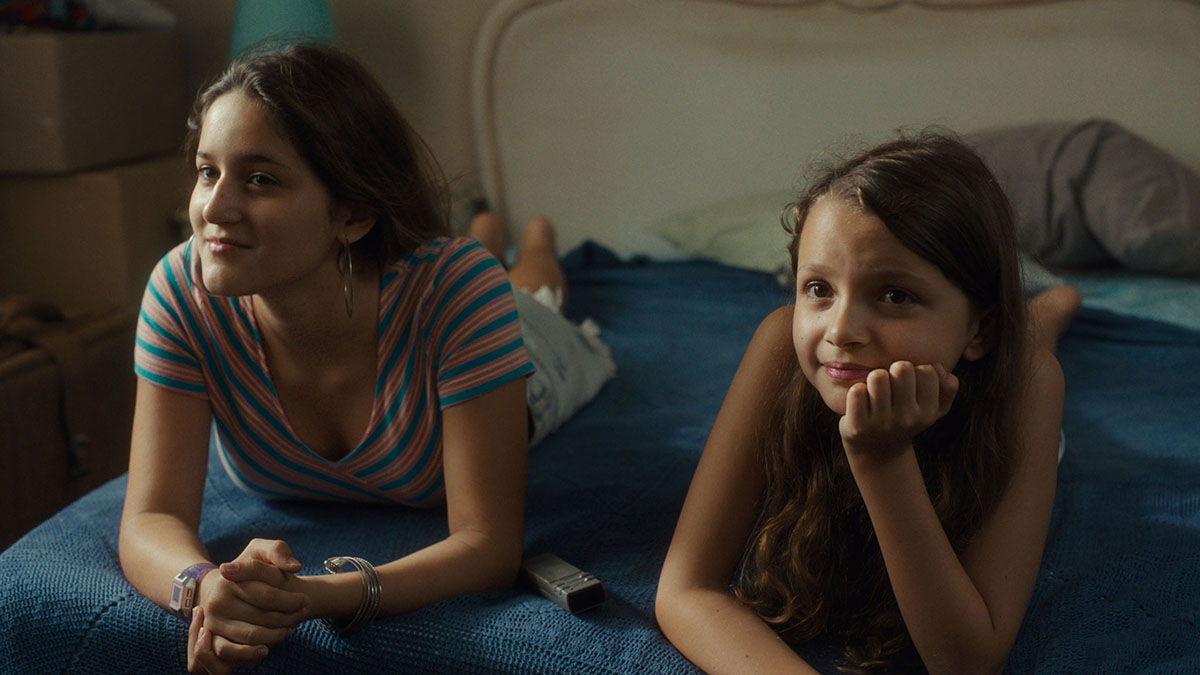Making Reinas was a homecoming for writer/director Klaudia Reynicke, which is ironic because the Sundance film is about the act of leaving. It tells the story of two sisters, 11-year-old Lucia (Abril Gjurinovic) and 14-year-old Aurora (Luana Vega) as their mother Elena (Jimena Lindo) prepares for the three of them to immigrate from the militarized Peru of the 90s to the United States.
It’s a personal story for Reynicke, who left Peru when she was ten and has since lived in numerous countries including the United States and now Switzerland. “Immigration stories usually follow through the trip or when they have arrived and how difficult it is to adapt,” she tells LatinaMedia.Co during the festival. “When you know you’re going to go away, knowing that you’re going to leave behind all of your life, all of your friends – and no matter what you go to, no matter what the hopes and dreams, and the job that you’ve got, or university or college [you’re headed to] – that specific moment, I think it’s one of the most difficult ones.”
“You’re closing your life… the next time you’re going to come back, you’re going to be another person, and people are going to see you as another person. And that’s amazing. And that hurts, too. And that’s something that obviously I relate to,” she shares before asserting, “There was not enough films talking about this.”

Reynicke shot it in Peru with a Peruvian cast and crew. “My two other films [Love Me Tender and Il Nido], they were totally made in Europe in Italy and in Switzerland. And, I wanted to go back to Peru and, it was a good way to reconnect with the people without being a tourist,” she recounts. “I’m selfishly happy that I get to do this in Peru, in my country, with Peruvian actors. And that’s been amazing. But, you know, I could have told the same story in another place, and that would have been okay. Obviously, it was important to me to go back to the 90s because this is when I left. But I think cinema and art, above all, need to make people think, and that’s what I hope people do [with this film.]”
As Lucia and Aurora prepare to leave for the US, their wayward father Carlos (Gonzalo Molina) reenters the picture. Elena needs his signature to take the girls out of the country. He’s the type of charming, no-account man the world seems full of. “I wanted to tell the story of a family, that is not a family anymore, that recreates itself in a way before separating for good,” Reynicke explains before sharing that she patterned Carlos after her father, who left when she was just five years old.
“When you have a character that makes everything wrong, that has never taken responsibility for being a father figure, for taking care of others – if it’s a man, you can still fall in love with that character,” she says, commenting on the double standard that allows men to remain sympathetic despite being terrible parents (a sympathy that is almost never afforded to women). Still, it is to their father’s detriment to miss out on parenting, something Carlos realizes too late. It’s a soft punishment that Reknicke doles out, asserting, “Maybe don’t wait until the last moment to create a relationship with your kids. Maybe be around, maybe be part of this, you know?”

Because Lucia and Aurora are two unique girls dealing with their own dynamics, that change quickly with age. If Carlos doesn’t catch this moment now, it’ll be gone forever. Aurora is all about her friends and independence while Lucia is still most comfortable next to her mother. Reinas dramatizes this developmental pattern along with that classic sibling relationship where the two sisters, as she says, “love each other in one second, then hate each other, and then they cry and they love each other. It’s amazing.”
It’s also a look into girls’ interior lives that’s normally not given prestige treatment, and rarely seriously considered on screen. But Reynicke focuses on it not just to tell her story, but to get to a broader point. She’s re-writing the script of the immigration movie, emphasizing the giving up, not the arriving. And that has political implications, asking the viewer to value the LATAM home as much as the US or European destination.
Reinas forces us to see its immigrant characters as thinking, feeling, and growing humans, not economic or political units. It questions gender dynamics and explores the way geopolitical forces affect regular people. As such, it surely succeeds in Reynicke’s goal of telling a universal story, set in the specifics of 90s Peru, that leaves audiences with plenty to think about.

